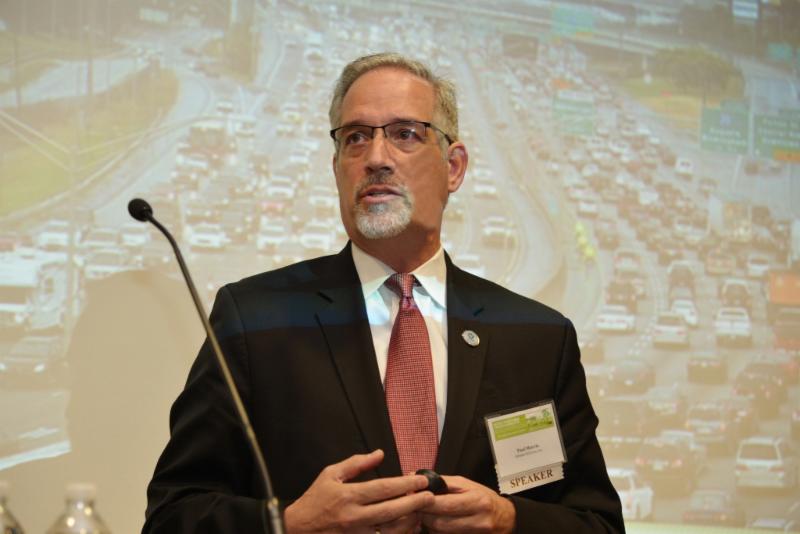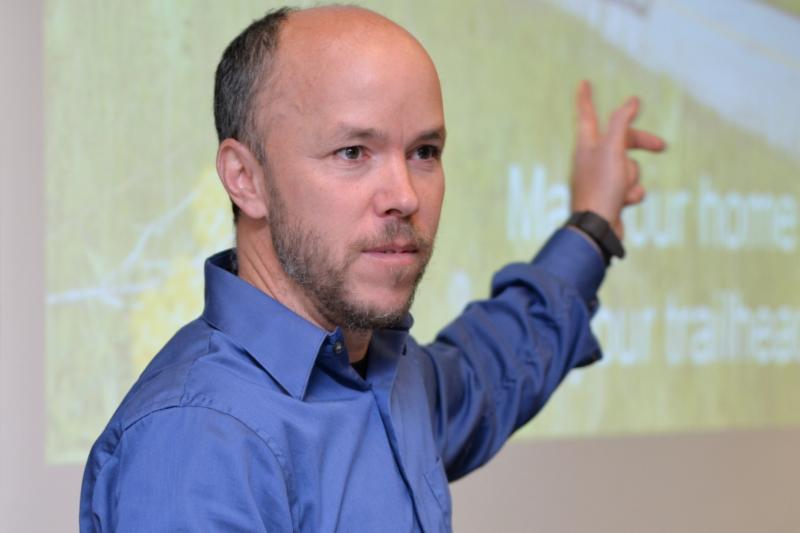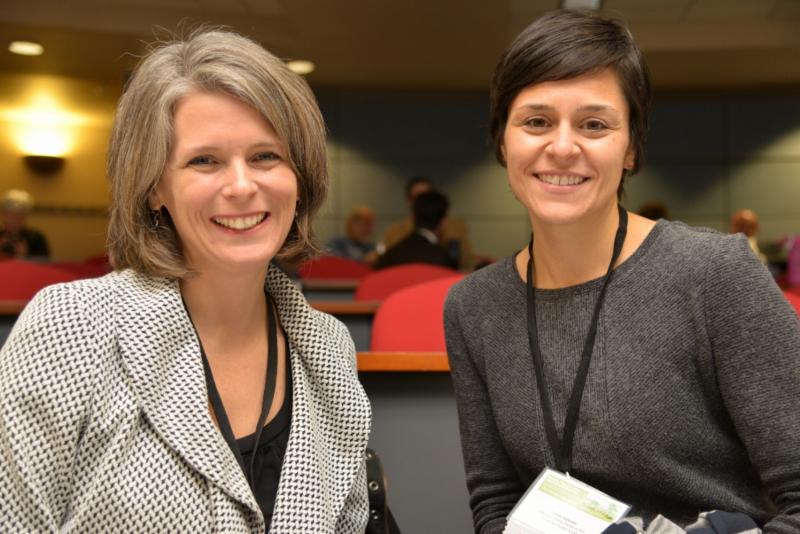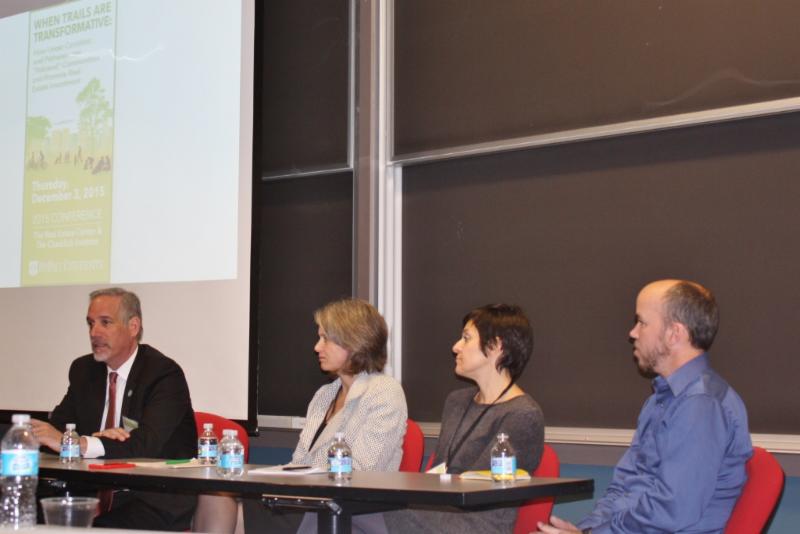
The Real Estate Center and Chaddick Institute joined forces to bring leading experts together for a discussion on the latest trends in linear parks and greenways.
Paul Morris, President and CEO of Atlanta BeltLine Inc. (ABI), opened the program with a keynote address on the development of the urban project known as the
Atlanta BeltLine and the impact it has made on lifestyle, economic development and affordable workforce housing.

The Atlanta BeltLine is transforming the city with a combination of rail, trail, greenspace, housing and art. It will ultimately connect 45 intown neighborhoods, provide first and last mile connectivity for regional transportation initiatives, and put Atlanta on a path to 21st century economic growth and sustainability.
The BeltLine is creating a culture shift in Atlanta by giving people options for healthier lifestyles, alternative commutes, and more localized living, and this approach leads to a better quality of life for the city, its residents, and its visitors. It is in the heart of the Atlanta region; connects many of Atlanta's cultural landmarks and institutional destinations and connects four historic abandoned freight rail rights of way encircling the center of town.
In addition, it unites 45 neighborhoods with 22% of the city's population living in the planning area. 19% of the city's land mass is inside the mile-wide 15,000 acre planning area with 6,500 acres in a tax allocation district (TAD).
A project of this magnitude requires a unique organizational structure. There are two main entities driving the Atlanta BeltLine's progress. The first is Atlanta BeltLine, Inc. (ABI), formed in 2006 by Invest Atlanta as a Georgia nonprofit organization for the purpose of managing the implementation of the Atlanta BeltLine program. ABI works with Atlanta BeltLine Partnership, formed in 2005 and funded by the private sector to raise capital, awareness and broad-based support for the Atlanta BeltLine. It accomplishes this through programs such as: free guided tours, free fitness programs, the Atlanta BeltLine Running Series and the Atlanta BeltLine Speakers Bureau and Ambassadors, et al.
Morris also touched on the economic development that is a direct result of the redevelopment:
* $2.4 billion in new private investment in the planning area since 2006
* 1,960,000 million of new commercial square footage
* ~ $868 million in TAD development
* ~ $760 million in Eastside Trail residential development
In addition, private investment is following public investment with over 110 projects complete or underway within Planning Area* valued at over $2.4 billion; 13,369 new residential units completed; 1,960,000 SF of new commercial space completed for a roughly 6:1 ROI to date.
Affordable workforce housing has been a critical consideration throughout the planning process. An $8.8 million Trust Fund has been established to provide down payment assistance, create incentives for developers and acquire property sites for affordable housing. To date, ABI and Invest Atlanta have created nearly 1000 affordable units.
A panel discussion followed Morris' keynote address and opened with introductory presentations from the following panelists:
Steve Buchtel, Executive Director of
Trails for Illinois, gave an overview of the importance of preserving and developing the intricate Illinois trail system featuring over 300 miles of connected pathways in the region. Some practices include simple branding to connect cities/towns to trails and exploring ways to ensure funding exists to maintain the trails over time.

Rebecca Leonard, Principal & President of Design Workshop, provided some background on the planning process and implementation of the
Lafitte Greenway project in New Orleans which is a three mile trail surrounded by nine working class neighborhoods. Prior to development, this area was a filled in railroad and industrial corridor.

Jamie Simone, Program Director for Chicago Urban Parks at the Trust for Public Land, talked about her role in the development of the
Friends of Bloomingdale Trail (also known as the 606) in Chicago including the importance of public and private partnerships, listening to the concerns of the community and integrating arts and culture into the plan.
A lively Q & A with the panelists and keynote speaker closed the conference.

View more event photos
here.